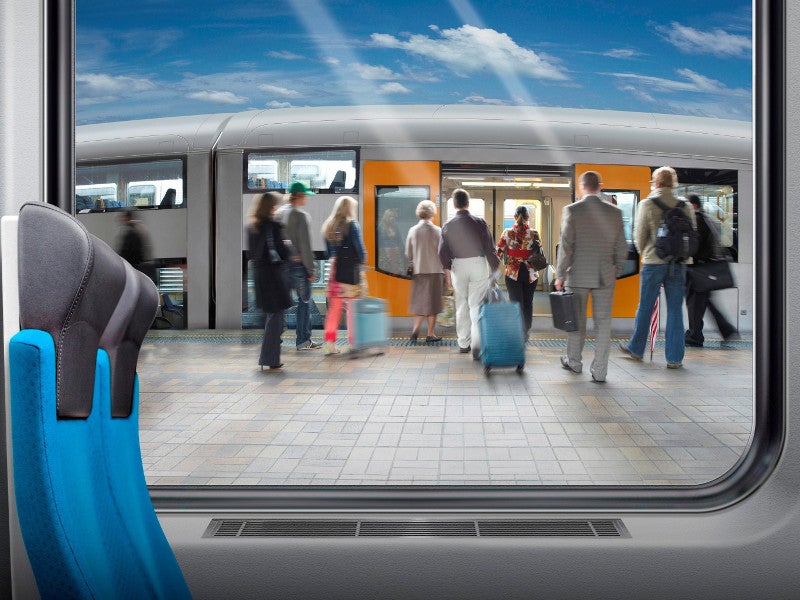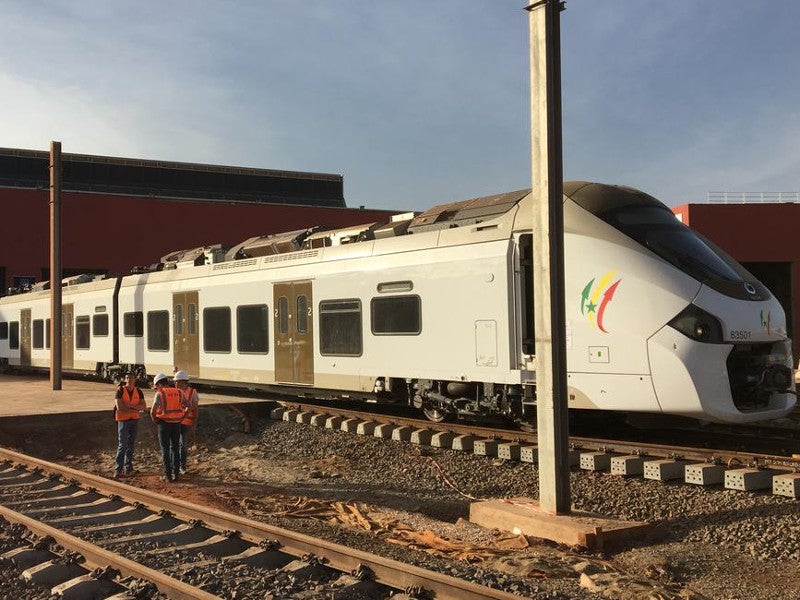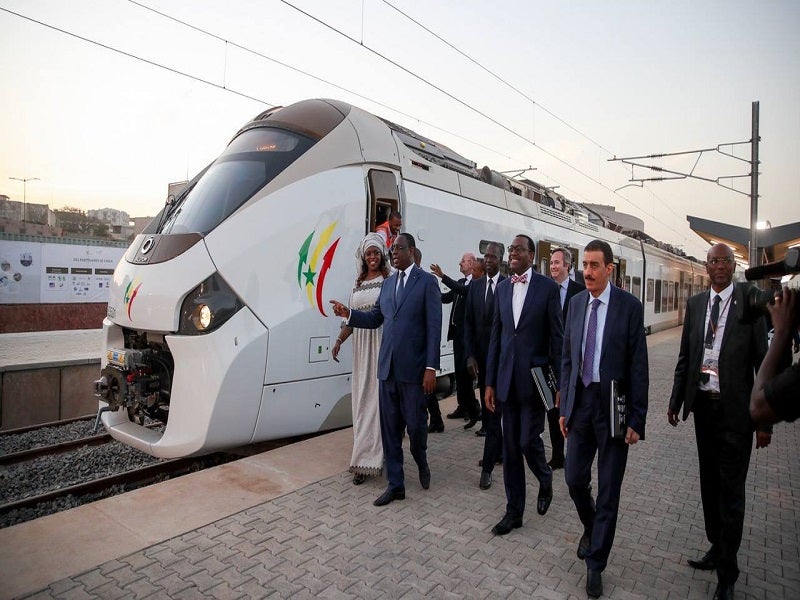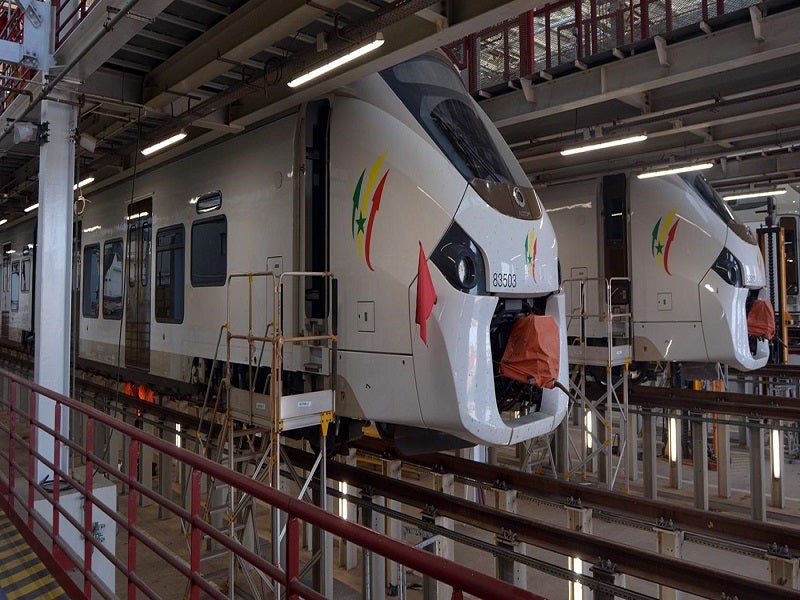The Dakar rail link, which is being implemented in two phases, will feature 14 stations and two maintenance sites.
The Dakar Regional Express Train (TER) is a railway line being built to connect Dakar city centre with Blaise Diagne International Airport (AIBD).
The project is a part of the economic development plan for Senegal, and aims to offer services for the Dakar suburbs by replacing the Petit Train de Banlieue (PTB).
The new line is being built by Engie and Thales for the Senegal Government’s investment promotion agency APIX, which is responsible for supervising the implementation of the railway project.
Construction of the Dakar TER commenced in December 2016. The first phase of the project was completed in December 2021, while the second phase is expected to be commissioned in early-2024.
Dakar Regional Express Train development details
The Dakar TER is an ultra-modern transport system that will link Dakar with AIBD in 45 minutes, through a 55km-long track, passing through 14 stations.
The project is being implemented in two phases. Phase one involved the upgrade of the 36km-long existing infrastructure between the Dakar and Diamniadio stations.
Phase two involves the construction of a 19km-long railway line between Diamniadio station and the AIBD. The new line is expected to transport approximately 115,000 passengers a day, when it becomes fully operational.
It also replaced the existing rail facilities and has a provision for the installation of four future tracks. An electrified double-track, with a standard gauge for passengers and a metric track for freight, will also be built. The project also includes the construction of a maintenance and service track, which can be converted into a fourth track in the future.
Stations on the Dakar Regional Express Train line
The Dakar Regional Express Train line will be served by 14 stations and two maintenance sites, including an infrastructure maintenance site in Rufisque, and a train maintenance site in Colobane.
Multi-modal stations at the Dakar Plateau and Rufisque were renovated, and a new multi-modal station was built in Diamniadio. The project also involved the construction of the Thiaroye and Bargny stations.
New stations were built at Colobane, Hann, Baux maraichers, Pikine, Yeumbeul, Keur-Massar, M’bao, and PNR. A new station will also be constructed at the AIBD, with connections to the terminals through a tunnel.
Rolling stock for Dakar TER
The Dakar Regional Express Train employs 15 Alstom Coradia Polyvalent trains, delivered by Alstom. The Coradia Polyvalent is a mainline dual-mode train, intended for both diesel and electric (25kV) operations.
The 72m-long Coradia Polyvalent train features four cars, and has the capacity to accommodate up to 565 passengers. Trains operate with a headway time of six to eight minutes.
Trains run at a speed of 160km/h and are equipped with an efficient air conditioning system, in accordance with the climatic and environmental conditions of the country. The low floor ensures easy access and on-board movement for people with limited mobility.
Signalling and communications
The project also involved the installation of technical systems, including European train control systems (ETCS) level two, rail electrification systems, and associated signalling systems.
Dakar TER’s line is installed with the global system for mobile communications-railway (GSM-R) to ensure safe communications between drivers and signallers. Other systems include fire detection, real-time passenger information systems on platforms and vehicles, and a comprehensive ticket system.
Stations and railway vehicles on the line are equipped with CCTV cameras, and Wi-Fi connectivity is provided to the passengers.
Financing the Dakar TER project
The Dakar TER project is estimated to attract an investment of €1bn ($1.14bn). The first phase of the project was funded by the African Development Bank, the Islamic Development Bank, the French Agency for Development, the French Treasury, and the Government of Senegal.
Contractors involved
ENGIE Ineo and Thales received a €225m ($256.8m) design-build contract from APIX for the Dakar TER. Thales, in partnership with Equans, delivered the technical rail systems for the project.
Thales provided a European rail traffic management system (ERTMS) level two signalling solution, a global ticketing system comprising its TRANSCITY mobility solution, as well as real-time passenger information and public audio systems.
A €373.5m ($426m) contract for the construction of the Dakar TER was awarded by the Senegalese Government to a consortium of Eiffage, Yapi Merkezi, and Compagnie Sahélienne d’Entreprise.
Alstom was awarded a contract by APIX for the supply of 15 Coradia Polyvalent trains, in December 2016.
Bolloré Logistics was selected to perform logistics operations of out-of-gauge packages and custom clearance formalities.
Terrasol received a subcontract from Eiffage to carry out geotechnical analysis of the foundations of the structures along the line.
Bureau Veritas was engaged to evaluate the design and implementation studies of the structural and functional aspects of the rail link project. It was also responsible for the technical assessment of key railway infrastructures such as stations, tracks, and trains.
SERTEM, a construction company based in Senegal, received a contract to construct eight stations from Colobane to Bargny, nine passenger footbridges at stations, as well as passenger buildings and the northern forecourt of Rufisque Station.
SYSTRA, a global engineering and consulting company, was appointed as the project management assistant for the project. SC Afrique, an engineering consultant based in Senegal, was engaged to perform topographic work for the TER project.






